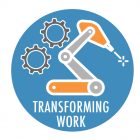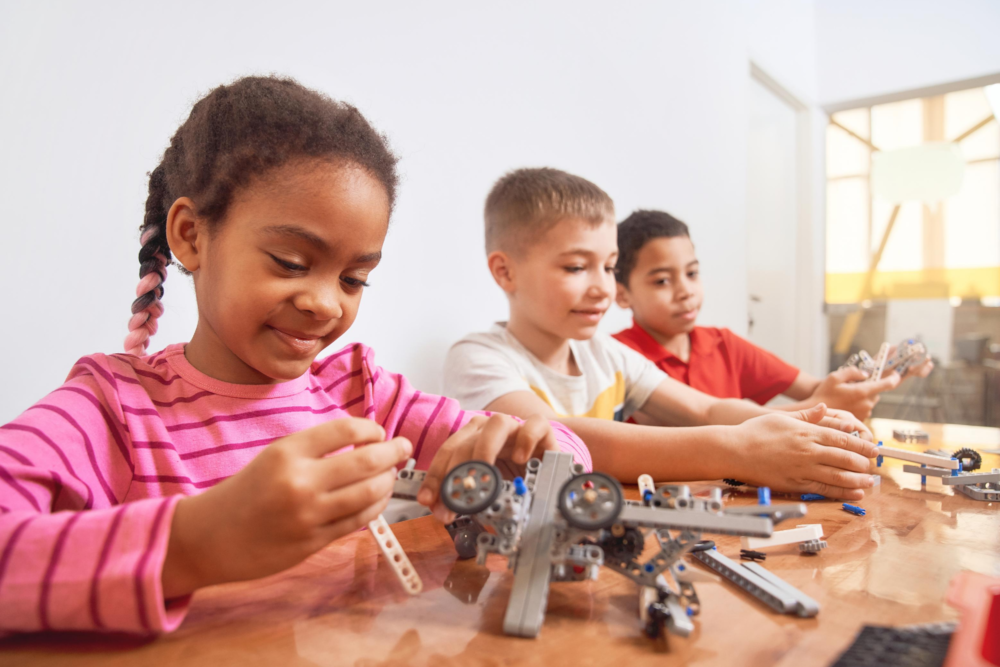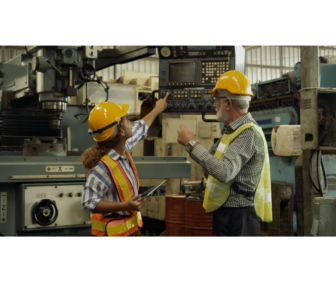
A little more than three years ago the Grand Rapids Public Museum hosted Outsmarting the Robots: Redesigning education from the classroom to the halls of Lansing. The conference was organized around the question “How do we redesign our system for learning to build the 21st century skills that matter to meeting the needs of our children, economy, society, and world?”
The conference organizers––including Michigan Future––believed that our education system needed redesign of both what we teach and how we teach. That standardized test driven schooling is designed to teach a too narrow set of skills and is delivered in a way that does not engage students nor create lifelong learners.
The conference was organized around the belief that all schools and youth development programming needs to be designed to build more rigorous and broader skills than what is on the test and that how we teach needs to be far more engaging and experiential. Our premise? We don’t have an education reform challenge; we have an education redesign challenge.
New York Times best-selling author of Becoming Brilliant: What the science of learning tells us about raising successful children Kathy Hirsh-Pasek served as the conference guide.
Becoming Brilliant makes the case that foundation skills for all students––no matter what path they choose to take after high school––are the 6Cs: communication, collaboration, content, critical thinking, creativity and confidence.
They also are the foundation skills students will need to outsmart the robots. To complement, rather than be replaced by, machines and to compete in a labor market that is increasingly rewarding those who are good at working with, solving problems with, innovating with, and leading people who don’t look like you and don’t think like you.
Fast forward to today where the latest headline grabbing smarter bot is ChatGPT. ChatGPT is widely viewed as a precursor to a wave of artificial intelligence which will take over from humans much of our high-paid mental work. Which, of course, raises the question in a world of constantly improving A.I. “What work will humans do?”.
In an insightful New York Times column, entitled In the Age of A.I., Major in Being Human, David Brooks suggests this list of outsmarting A.I. bots skills: a distinct personal voice; presentation skills; a childlike talent for creativity; unusual worldviews; empathy; and situational awareness.
It is clearer today that if Michigan is serious about preparing all its children to be successful in life and work we need to redesign schooling. One where students are engaged, not bored; one where all students are developing agency to create and realize their own dreams; and one where all students develop the broad non-content and non-occupation specific skills that will enable them to keep learning and adapting in a world characterized increasingly by constant change.
That means we need to deemphasize standardized tests which focuses schooling on way too narrow content skills and drives out developing the Becoming Brilliant and Brooks’ foundation skills.
We need to deemphasize building occupation-specific skills. Knowing coding or welding or accounting is not what matters most to having a successful forty-year career. All of those occupational skills have a shorter and shorter half life. It’s not that knowing how to code, weld or do accounting is irrelevant to getting a job today, it is those are the icing on the cake career-ready skills, not the essential skills.
We need to reemphasize the liberal arts. As Harvard economist Dave Deming writes:
A liberal arts education fosters valuable “soft skills” like problem-solving, critical thinking and adaptability. Such skills are hard to quantify, and they don’t create clean pathways to high-paying first jobs. But they have long-run value in a wide variety of careers. … But even on narrow vocational grounds, a liberal arts education has enormous value because it builds a set of foundational capacities that will serve students well in a rapidly changing job market.
And maybe most importantly we need to redesign how we do teaching and learning. Schooling needs to look like the rigorous and engaging projects featured in the movie Most Likely to Succeed. And to look far more like extracurriculars and electives than the tradition classroom.







